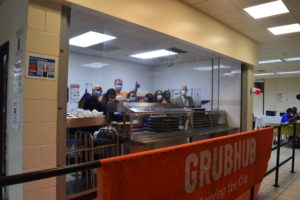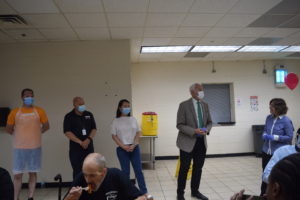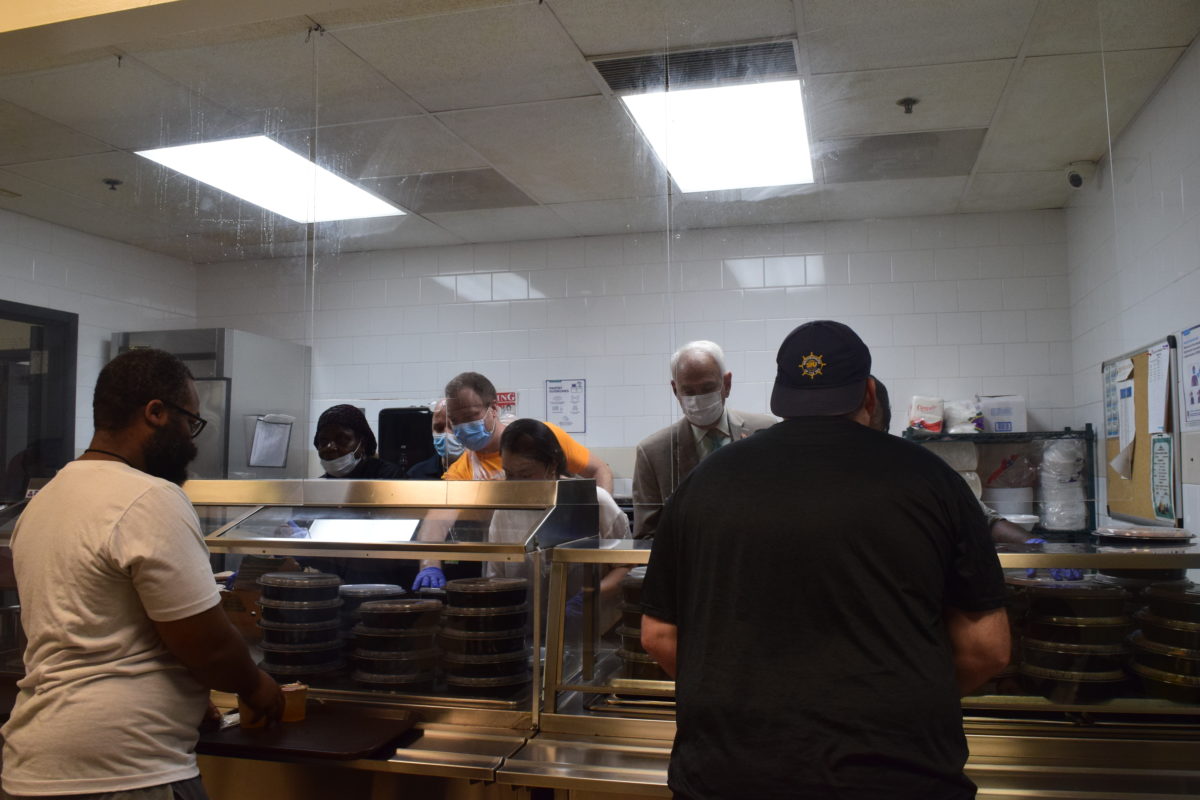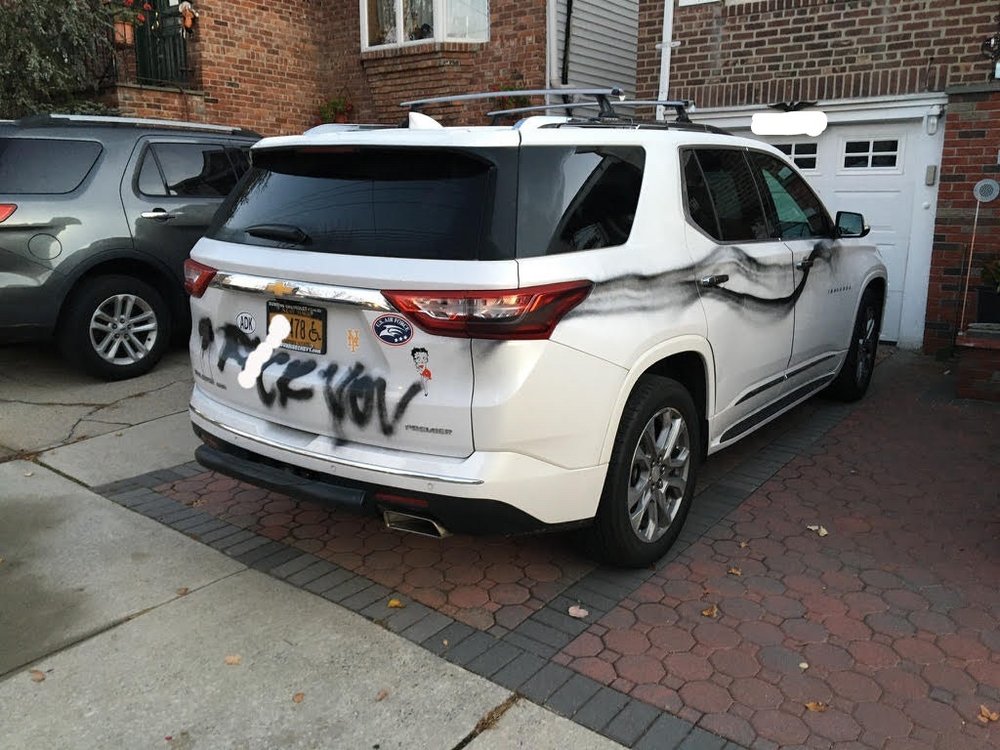Electeds, GrubHub bring meals to homeless vets
O’Neill’s of Maspeth donates 500 meals
Last Friday, the cafeteria of Borden Avenue Veterans Residence in Long Island City looked a little bit different.
Instead of their usual meals, the residents were surprised with having the option of sausage and peppers, chicken, or pasta from O’Neill’s of Maspeth—courtesy of Councilman Robert Holden, Councilwoman Julie Won, and Grubhub.
As part of their first-of-its-kind Serving the City program, Grubhub will donate quality meals to underserved communities.
“This is a first-of-its-kind program for Grubhub and launching in New York City—touching all five boroughs and partnering with every single city council member—is the perfect way to leverage our resources and address food insecurity for those in need,”

GrubHub representatives and local elected officials provide meals from O’Neills in Maspeth
Brett Swanson, Grubhub’s senior manager for community affairs and social impact said. “To have the greatest impact, we’re going hyper-local, working with the city council members to understand specific needs in the community and then partner to address them.”
The Borden Avenue shelter is a program of Institute for Community Living, a New York-based non-profit dedicated to serving folks who are homeless or mentally ill, as well as those diagnosed with mental illness, substance abuse, and developmental disabilities. ICL also runs the Tillary Street Shelter for Women in Downtown Brooklyn.
Jody Rudin, ICL’s president and CEO, was pleased to say that with the 500 meals donated, the 200 residents would have the option to go up for seconds and thirds.
“We’ve been partnering with Councilmember Holden in his role as chair of the City Council’s Veterans Committee, and he has been focused on the needs of the 200-or-so men living here, all of whom are veterans,” she said.
“Clients often don’t have the best experience dealing with systems and getting the attention, support, and dignity that they deserve—so to have this happen for them, and to have the councilmembers come and allow a chance for them to talk about things that could be improved here is so important,” she continued. “This is about more than the food. It’s about care, compassion, and attention for this population that served our country and is now homeless.”
While addressing the cafeteria, Holden acknowledged that upon visiting the shelter a few months ago, the top complaint he heard about was the food, and said he is committed to improving it in the long term.
“I held up the food that’s served in the trays at one of the hearings, and the mayor promised to improve the food, and also the entire shelter, giving everybody a private space eventually,” Holden said.

Veterans were given a chance to share their concerns with local electeds
He assured the group that he is there for them for anything they need, and thanked them for serving their country.
Councilwoman Julie Won echoed Holden’s sentiment, and assured the residents that she strives to ensure that their needs are met.
“We heard you when you said, ‘we want to have better food on a daily basis.’ We’re going to continue to work together to make sure that our city is paying attention to the food that is served to you—that it’s culturally competent, nutritious, of the right quantity, and hot and fresh food,” Won said. “In addition to that, we hear you. We know that we have an affordability crisis on our hands for this district that I represent.”
The council members and ICL staff eventually gave the floor to the residents of the shelter, allowing them to voice their concerns and needs regarding their daily lives.
Hiram Bonet, a veteran and resident of Borden Avenue Veterans Residence, brought up mental health and quality of life issues.
“Some veterans who are here are being underserved. They don’t belong among the rest of us. They need a better, higher level of care for their mental health issues,” he said. “It’s not fair to some of us, them, their families, or our families. It needs to be addressed.”
To combat this issue, he suggested a clinical assessment on intake to appropriately evaluate the level of care they need, as opposed to merely receiving referrals from the city based on veteran status.
Bonet also brought up the fact that the dormitory areas where the men sleep at night are not air conditioned, and they are not allowed to purchase their own portable units or fans.
“I work nights at the Department of Sanitation, and when I come back, exhausted from a shift, I can’t sleep because I’m drenched in sweat. I can’t sleep with clothes on because it’s just impossible,” Bonet said. “There’s also a window in my cubicle, so I feel uncomfortable sleeping without any clothes on, but I have to.”
“On the AC issue, the long term story is we are working with the Department of Homeless Services on a real solution. We think the suggestion of fans in rooms is a good one, and we’re going to do that,” Rudin said.
“You have a commitment there, and thank you for raising these concerns.”





